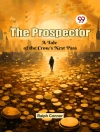In ‘Thelma, ‘ Marie Corelli weaves a rich tapestry of romance and self-discovery set against the backdrop of the majestic Norwegian fjords. The narrative follows its eponymous heroine, whose journey of love, betrayal, and spiritual awakening is articulated through Corelli’s signature lyrical prose and her keen insight into human psychology. This novel, published in 1887, reflects the Victorian era’s preoccupation with emotional depth and the quest for personal freedom, presenting a captivating exploration of the constraints placed upon women in society and the yearning for a deeper connection with the soul and nature. Marie Corelli, born into an era of strict social mores, often pushed against the boundaries of genre and propriety in her writing. Her own childhood experiences and passion for both literature and the arts influenced her collaborative spirit toward storytelling, allowing her to empathize with women facing societal challenges. Corelli, who gained popularity as one of the first female novelists to achieve commercial success, drew upon her fascination with mysticism and romanticism to craft narratives that resonated with the changing tides of society. ‘Thelma’ is a must-read for anyone interested in classic literature that deftly combines romance with critical social commentary. Corelli’s exploration of profound themes remains relevant today, providing insights into the continuous struggle for self-identity and emotional fulfillment. As readers are drawn into Thelma’s world, they will find a reflection of their own desires and the timeless challenges of the human condition.
Sobre el autor
Marie Corelli, born Mary Mackay (1855–1924), was a prolific British novelist during the late Victorian and Edwardian eras, known for her flamboyant writing and the polemical infusion of spiritual and fantastical themes in her work. Corelli’s success in her time was remarkable; her books often outsold contemporaries such as Arthur Conan Doyle, H.G. Wells, and Rudyard Kipling. Her literary style is characterized by a blend of melodrama, romance, and the supernatural, making her works appealing to a broad audience seeking both excitement and moral upliftment. ‘Thelma’ is one of Corelli’s notable works, a romantic novel set against the backdrop of the Norwegian fjords, which showcases her penchant for dramatic narratives and exotic locales. Corelli was a self-taught writer whose literature was both adored by the general populace and often derided by literary critics who deemed her style overwrought and her themes moralistically didactic. Despite such criticism, her influence was significant in popular literature; Corelli’s novels played a part in shaping early twentieth-century attitudes towards spirituality and mysticism. While modern scholarship has largely overlooked Corelli’s contributions, a re-evaluation of her work sheds light on the complexities of her narratives and the socio-cultural impact of her widely read, if ostentatious, storytelling.












